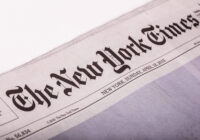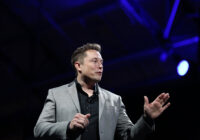In the Democratic presidential debate, Hillary Clinton repeatedly misrepresented her history and positions on a number of issues.
Are US presidential debates best viewed as competitions? Ideally they move the national dialogue forward by challenging candidates on critical policies. Debates that run well push politicians into uncomfortable territory. Those with well-rehearsed (and often misleading) answers may struggle less, but voters see through such performances.
We saw that in 2012, when Republican presidential candidate Mitt Romney repeatedly and confidently lied during debates, yet lost the election.
We saw this again on October 13, when Democratic presidential candidate Hillary Clinton repeatedly misrepresented her history and positions. Americans saw through it. Numerous focus groups and polls declared Bernie Sanders the strong winner.
But Clinton gave enough of a performance to allow a corrupt mainstream media to give her glowing reviews.
In a Facebook poll, 82% of viewers said Sanders won. On Twitter, he was mentioned more, gained more followers and had a higher percentage of positive tweets than Clinton. He won focus groups and polls from Time, Slate, CNN, Fox News and many others. Yet mainstream media—including NPR, The New York Times, The Guardian, Vox and The Boston Globe—said or implied Clinton did better, often by a lot.
Why? Media organizations were likely responding according to Edward Herman and Noam Chomsky’s propaganda model. The highly concentrated mass media includes CNN, who buried polling showing Sanders had won and deleted comments. Parent company Time Warner was Senator Clinton’s seventh biggest financial contributor.
CNN and other networks also edited out coverage of Sanders’ follow-up to his dismissal of the importance of Clinton’s emails, which involved criticizing the media’s campaign coverage. Debate analysis biased against Sanders also likely reflects the media currying favor with the candidate they believe will win.
Of specific note to the mass media was Clinton’s assertiveness. A New York Times article cited her “crisp answers to nearly every question, an aggressiveness her rivals did not seen ready for.”
It’s true: few were prepared for her “crisp answers.” But that’s because her record as a moderate, her weak foreign policy decisions and recent policy flip flops should have cast a pall over her debate performance. So instead she made stuff up. Some particularly egregious cases are below.
Trans-Pacific Partnership
Moderator Anderson Cooper’s first question to Clinton was asking her about whether she changed positions “based on political expediency,” citing new stances on same-sex marriage, immigration and the Trans-Pacific Partnership (TPP), which she earlier called the “gold standard.”
In response Clinton explained: “I did say, when I was secretary of state, three years ago, that I hoped it would be the gold standard. It was just finally negotiated last week, and in looking at it, it didn’t meet my standards.”
The reality is Clinton said it “set the gold standard” (in fact, she advocated 45 times for the deal as secretary of state.) And she must have known this: Less than a week before the debate, she put out a weirdly worded position indicating opposition to the TPP. But her well-crafted debate story sounded better, despite its falsity.
Climate
After presidential candidate Martin O’Malley discussed his plan for a 100% clean energy grid by 2050, Clinton was on the defensive. She had said, “I never took a position on Keystone until I took a position on Keystone,” about the pipeline she opposed less than a month ago.
So in a technique she would use repeatedly, she pulled in President Barack Obama. She described how the two of them were “hunting for the Chinese” in a convention center in 2009 and “marched up, broke in” before signing them up to the first international agreement on climate change.
Haven’t heard of it? Not surprising, few have, given the 2009 Copenhagen Summit is “widely perceived to be one of the biggest diplomatic failures in recent history.” An international adventure with a win for American leadership sounds good. Even if it really wasn’t.
The Banks
After months of being criticized for her lack of support for re-implementing the Glass-Steagall Act, Clinton put forth a proposal on how to deal with the banks. This came out just five days before the debate.
When Anderson Cooper asked her about her lack of support for Glass-Steagall, she mentioned the document few would likely have reviewed. She referred to it as “more comprehensive” and distinguished herself as taking on “shadow banking,” saying others “may be missing the forest for the trees.”
The reality is her position is probably weaker for two reasons. First, shadow banking is an integral part of the banking system, such that addressing too-big-to-fail institutions includes tackling oversized investment banks.
Second, while her plan allows for regulators to act when banks exceed a certain threshold, it’s unclear whether she would do so, especially given the largesse she has accepted from Wall Street as campaign donations and speaking fees. So she promoted a weaker position with confidence and hand-waving.
Edward Snowden
When asked about Edward Snowden’s return to the United States, Clinton indicated he should be tried, saying: “He could have been a whistleblower. He could have gotten all of the protections of being a whistleblower. He could have raised all the issues that he has raised. And I think there would have been a positive response to that.”
Norman Solomon, the executive director at the Institute for Public Advocacy, disagreed on Democracy Now, saying Clinton “gave hypocrisy a bad name.” He cited similar incidents by Jeffrey Sterling, a former Central Intelligence Agency officer, and Thomas Drake, a National Security Agency whistleblower, which “marked them for persecution and prosecution.”
Solomon went on to say: “[T]he idea that Hillary Clinton was floating, that somehow there are channels for whistleblowers to go through in the so-called national security arena as whistleblowers, that is ridiculous. And either she was being mendacious or ignorant, or some combination.”
Again, Clinton spoke confidently, yet incorrectly.
Any 15-year-old kid can deliver a good speech. Any debater can maintain a façade of confidence while misrepresenting reality. Mitt Romney did so repeatedly. But on October 13, the American people were not fooled. Even as mainstream media pretended to be.
The views expressed in this article are the author’s own and do not necessarily reflect Fair Observer’s editorial policy.
Photo Credit: JStone / Shutterstock.com
 We bring you perspectives from around the world. Help us to inform and educate. Your donation is tax-deductible. Join over 400 people to become a donor or you could choose to be a sponsor.
We bring you perspectives from around the world. Help us to inform and educate. Your donation is tax-deductible. Join over 400 people to become a donor or you could choose to be a sponsor.
Support Fair Observer
We rely on your support for our independence, diversity and quality.
For more than 10 years, Fair Observer has been free, fair and independent. No billionaire owns us, no advertisers control us. We are a reader-supported nonprofit. Unlike many other publications, we keep our content free for readers regardless of where they live or whether they can afford to pay. We have no paywalls and no ads.
In the post-truth era of fake news, echo chambers and filter bubbles, we publish a plurality of perspectives from around the world. Anyone can publish with us, but everyone goes through a rigorous editorial process. So, you get fact-checked, well-reasoned content instead of noise.
We publish 2,500+ voices from 90+ countries. We also conduct education and training programs
on subjects ranging from digital media and journalism to writing and critical thinking. This
doesn’t come cheap. Servers, editors, trainers and web developers cost
money.
Please consider supporting us on a regular basis as a recurring donor or a
sustaining member.
Will you support FO’s journalism?
We rely on your support for our independence, diversity and quality.






